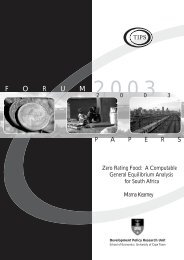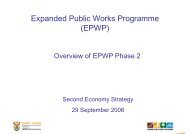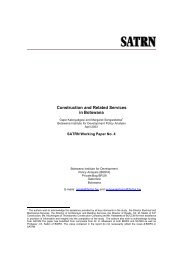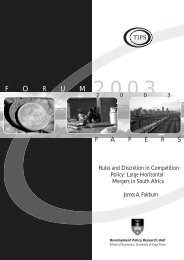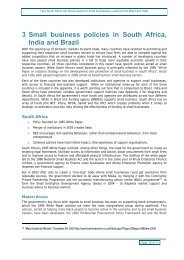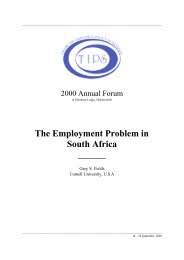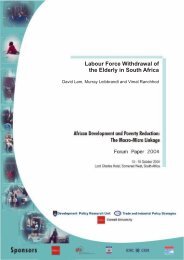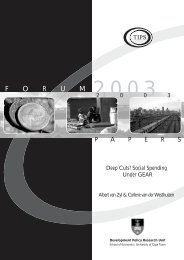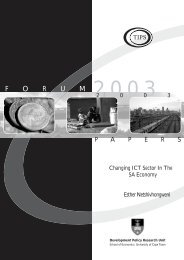(AsgiSA) Annual Report 2008 - South African Government Information
(AsgiSA) Annual Report 2008 - South African Government Information
(AsgiSA) Annual Report 2008 - South African Government Information
Create successful ePaper yourself
Turn your PDF publications into a flip-book with our unique Google optimized e-Paper software.
Accelerated and Shared Growth Initiative for <strong>South</strong> Africa<br />
ANNUAL REPORT<br />
<strong>2008</strong><br />
In addition, SOEs now confront the difficult task of balancing the need to fund major new<br />
investments with concern about above-inflation increases in tariffs, particularly during the<br />
economic downturn.<br />
Addressing these challenges requires:<br />
• broader agreement between the main stakeholders inside and outside government on financing<br />
models for new infrastructure investment to minimise the overall economic costs<br />
and avoid policy instability<br />
• the establishment of systems to monitor the cost of infrastructure against realistic targets.<br />
Skills development is a second area requiring greater co-ordination across government. The<br />
State must do more to ensure that national skills funds are allocated in line with economic<br />
needs, and specifically with sectoral policies. An important step to this end would be to ensure<br />
that the Setas foresight sectoral skills are more regularly determined, in line with their<br />
core mandate.<br />
Finally, government must also ensure greater coherence across regulatory frameworks to<br />
minimise the burden on the economy and on individual businesses. A specific challenge is to<br />
ensure that new, transformative standards, notably around BEE, the environment, and electricity<br />
efficiency, are, when taken all together, both affordable and as efficient as possible.<br />
The year under review saw a lively discussion on how to bring about greater co-ordination<br />
in economic policy, focusing mostly on how to enhance government’s planning procedures<br />
and institutions. From this standpoint, the initiation of the IPAP represented an important<br />
step towards aligning economic policy around key priorities. The challenge is to strengthen<br />
the IPAP, in particular by:<br />
(a) Extending its scope, particularly to integrate policies on mining, agriculture and the tertiary<br />
sector, which remain critical for exports, food security and employment. A major<br />
step towards including these critical sectors would be the development of a common<br />
methodology for designing and implementing sectoral strategies across the State.<br />
(b)Institutionalising the IPAP as a rolling three-year plan, as proposed in the National<br />
Industrial Policy Framework. To date, the proposed review and re-publication of the IPAP,<br />
which is crucial to ensure responsiveness to new conditions, has experienced serious<br />
delays.<br />
68



